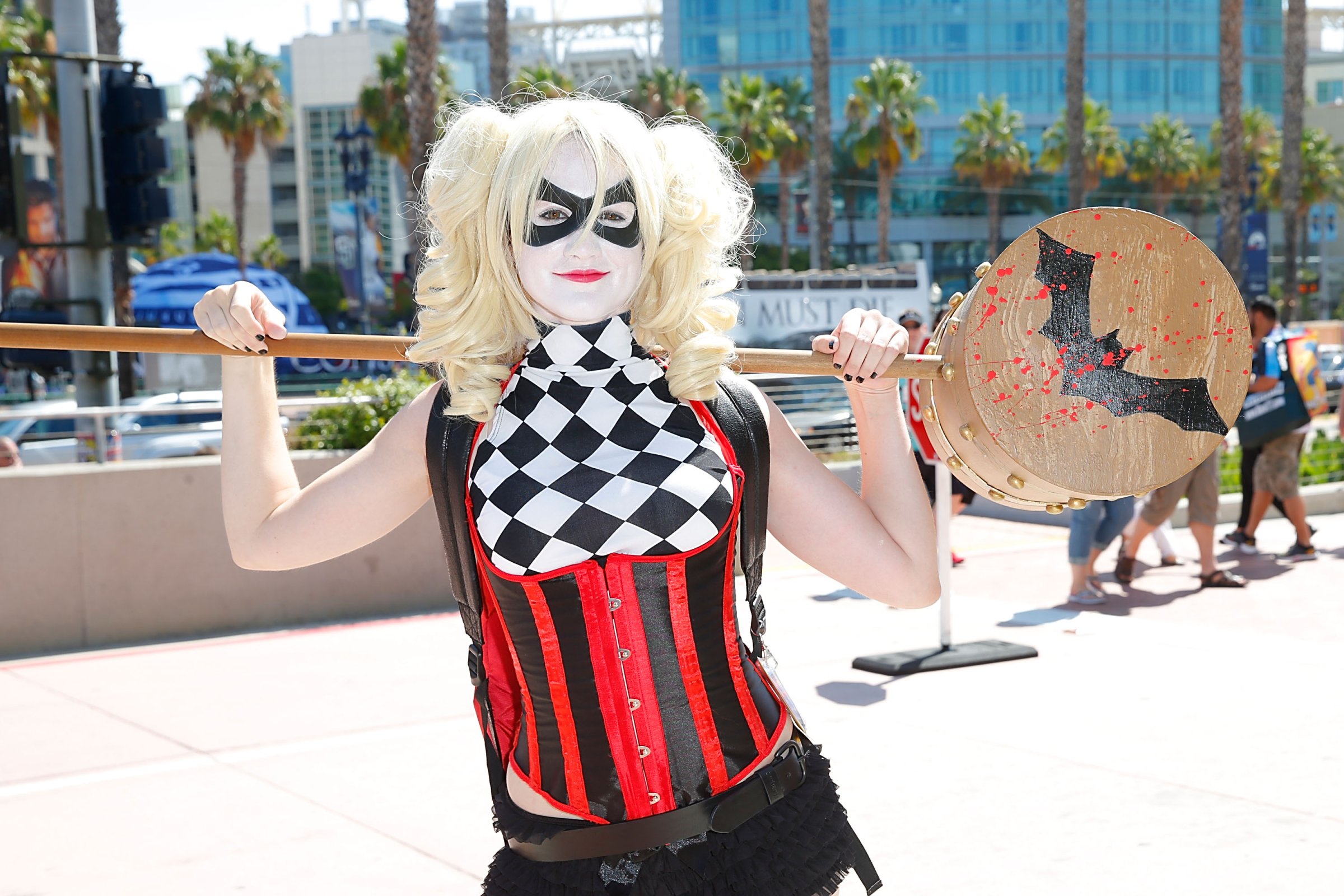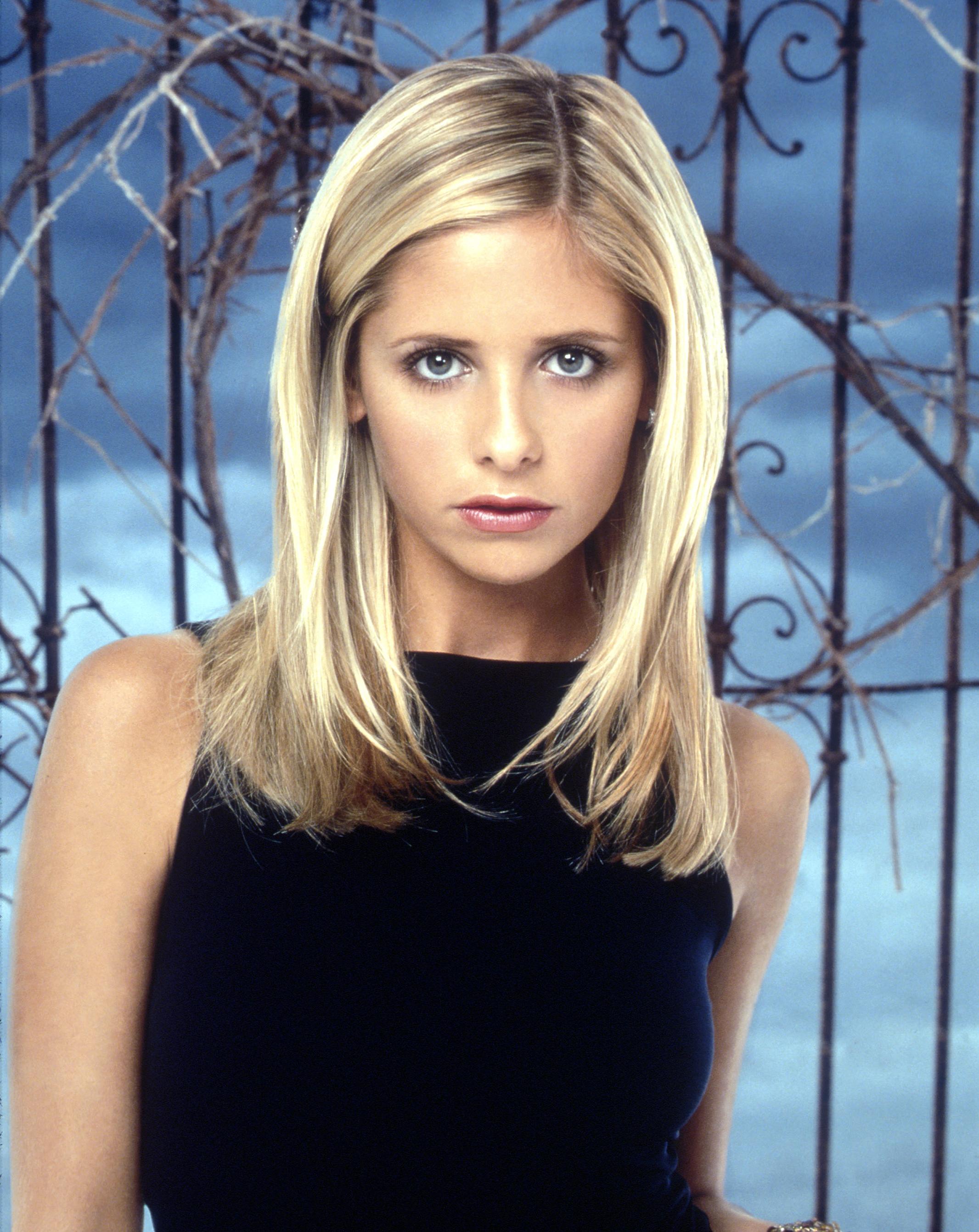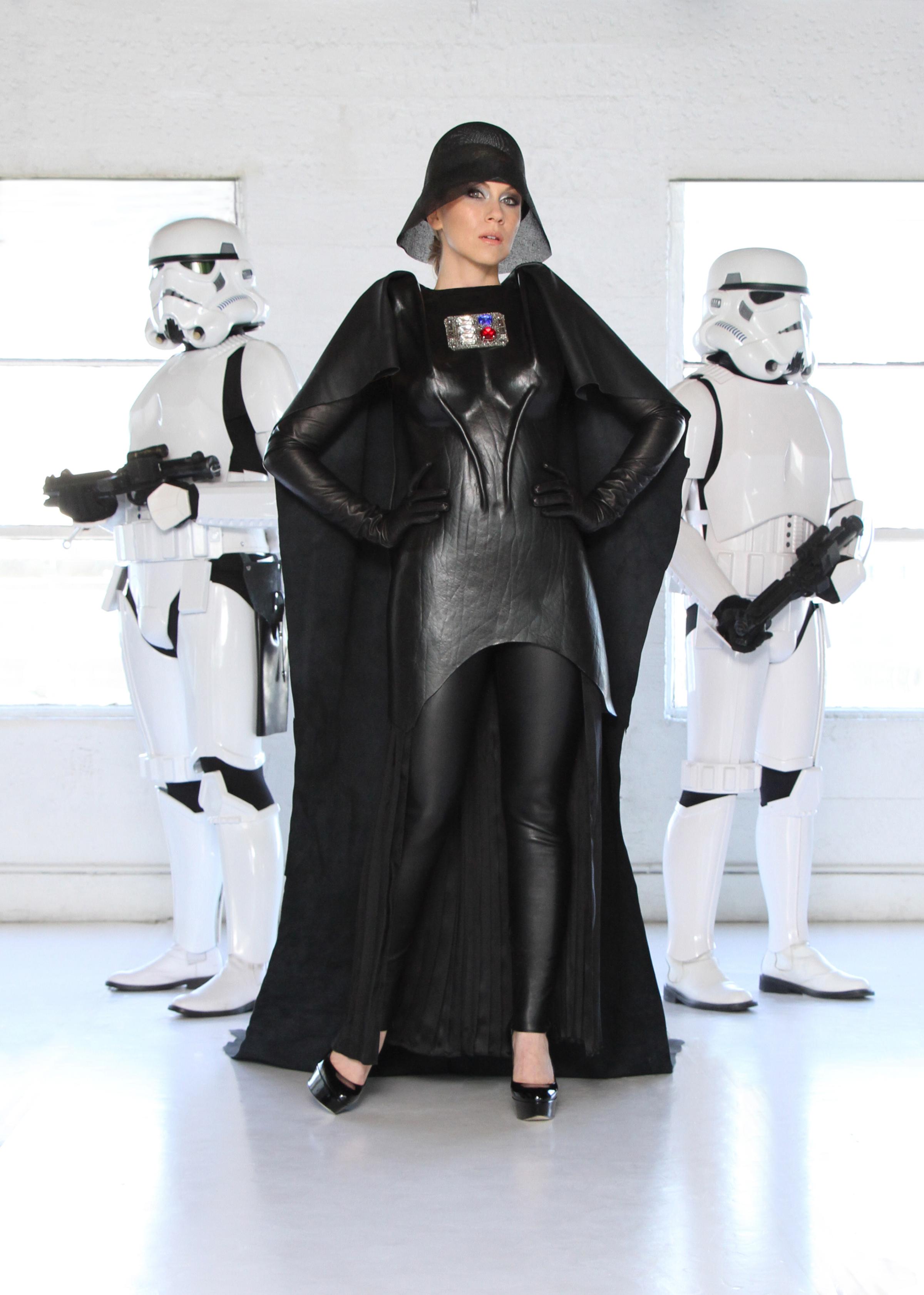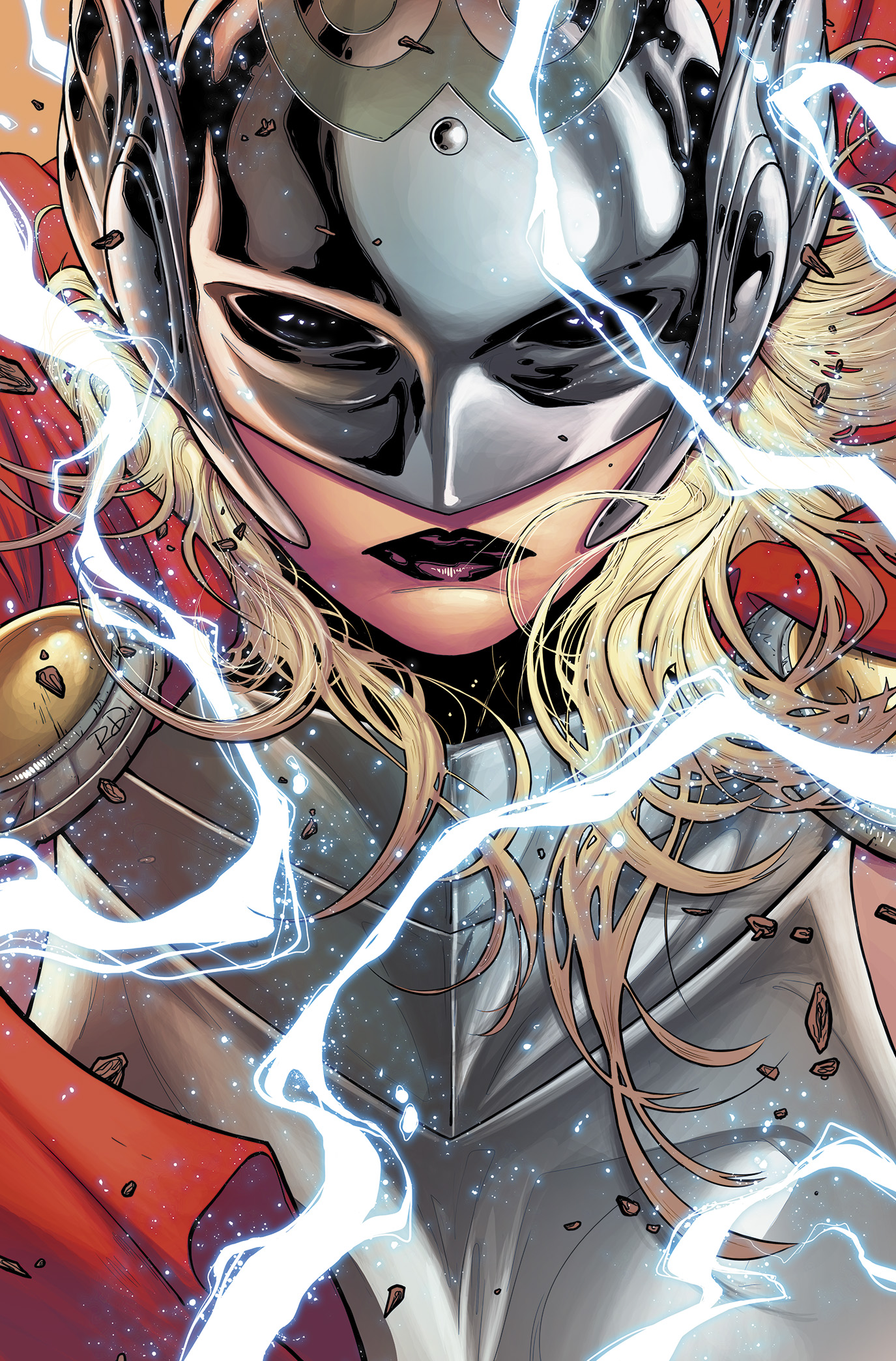
San Diego Comic-Con—an annual conference celebrating all things gloriously nerdy from The Avengers to Star Trek—has had a reputation as a boys’ club, albeit a geeky one. Many unfamiliar with the event might assume it’s made up of nerdy boys in Star Wars costumes ogling “booth babes.” But attend this year’s Comic-Con, which began Thursday and runs throughout the weekend, and you can visit a panel on the women of Marvel comics, watch a geek couture fashion show and meet female writers of iconic shows like The Walking Dead.
This year’s Comic-Con will draw 130,000 fans, almost half of whom are female. It will feature 12 panels focused specifically on women—more than ever before. And that doesn’t even count panels that feature female writers without advertising it.
“When I was in high school I went to some local sci-fi cons, and the way I remember it, men vastly outnumbered the women. Now though when I go to cons I see that the numbers are far more evenly matched, and that’s nothing but terrific,” says Phil Plait of Bad Astronomy fame, who is hosting a panel called “Behind the Scenes of Science Fiction in Movies and on TV,” which happens to be made up of all female writers from shows like Game of Thrones and movies like Guardians of the Galaxy. “There’s nothing inherent in the ideas of fantasy, science fiction or any other genre that shouldn’t appeal to men and women equally — to everyone equally.”
Girls are taking over Comic-Con, but where did they come from and why did it take so long?

Out of the Shadows
Long-time attendees, panelists and industry insiders believe that women have always been a fan of genre, but in the last five years they have become more openly vocal about their nerdy tendencies.
“I feel like it’s perceived to be a boys’ club, but I’m not sure it ever really has been,” says Jane Espenson, who will participate in the sci-fi writing panel. Espenson wrote episodes on a wide range of sci-fi and fantasy shows, including Buffy, Game of Thrones and Battlestar Galactica (where she was the only woman in the writer’s room). She is currently a co-creator of the online show Husbands. “There were always a lot of women at those Buffy panels. Even at the Battlestar Gallactica panels because Starbuck was such an iconic female character, you’d see a lot of women showing up in fighter pilot uniforms.”
Sci-fi and fantasy have a history of being groundbreaking in terms of diversity: the original Star Trek forged the way for social change by telling stories about acceptance using aliens as a stand-in for marginalized human groups. But it took social media and conventions like Comic-Con to bring together like-minded geek girls who may have been bullied or marginalized at their schools for liking “boy things.”
“The community of women who are interested in these things are becoming more vocal thanks to things like Twitter and Tumblr,” says Jeanine Schaefer, an editor at Marvel who has worked on titles like She-Hulk and the all-female X-Men series. “It’s not that they’re suddenly here. It’s that they’re suddenly more visible.”
In a world where Game of Thrones, a fantasy show, has become the most-watched series in HBO history (an unimaginable feat just a few years ago), being a nerd has become kind of cool. “Not only is it acceptable now to enjoy these things, but it’s oddly kind of sexy to like video games and science and get what the boys are doing,” says Espenson.
And a plethora of cool female characters in these genres — from Deanerys in Game of Thrones to Mystique in X-Men — have connected with fans and inspired them to create their own badass ladies in fan fiction or even within the industry. “The number of letters that I’ve gotten over the years from young women talking about how they only survived high school because of Buffy is overwhelming,” says Espenson. “I think women see the show and want to create their own thing.”

Geek Couture
Nothing epitomizes the transition of girl geek culture into the limelight quite like the rise of Her Universe, a women’s clothing brand dedicated to geek-inspired fashion (think: Avengers leggings and R2D2 skirts). Founder Ashley Eckstein got the idea after she was cast in Star Wars: The Clone Wars in 2005. As a part of the franchise, Eckstein sought out Star Wars women’s wear and came up short. “I was tired of wearing men’s boxy shirts,” she says. “I wanted women’s cuts and dresses. I did my research and close to 50% of sci-fi fans are women, and 80% of all consumer purchases are made by women. I’m no mathematician, but that looked like an untapped market.”
So she started her own company in 2010. Her Universe now has licenses to create apparel based on Star Wars, Star Trek, Dr. Who, The Walking Dead, Marvel and Transformers, among other franchises. The label took off and is now a mainstay in popular stores for teens like Hot Topic.
In an effort to further reach out to female fans, Eckstein is organizing a fashion show for “geek couture” at this year’s Comic-Con. Comic-Con is of course filled with cosplay—short for costume play, in which participants dress like their favorite characters—but Eckstein spotted another movement. “I’d been noticing a trend for quite some time that girls who show up in their own costume fashions that weren’t cosplay,” she says. “They were these outfits that were cosplay-inspired but that you could wear going out, and the women were using Comic-Con as their runway.”
Eckstein worked for two years to create a real fashion show featuring designs submitted by fans. They received over 160 submissions and narrowed the show down to 36 outfits. The two winners of the show will get to design their own lines for Her Universe. Such an event would have been unimaginable at Comic-Con in the 00s.

Thor Becomes a Woman
As the geeky girl has become a more visible trope online and at the convention, industry execs have realized they can reap huge profits from an untapped market of female fans. So they started reaching out directly by licensing stories to companies like Her Universe. Now, they’re taking the next step by re-examining the diversity of characters in their comic books, films and shows.
For the past four years, Marvel has hosted a “Women of Marvel” panel that highlights not only female writers and editors at Marvel Comics but also some of the brand’s female superheroes. Marvel editor Schaefer says that last year was their most successful panel ever: the room was so full with both men and women that most had to stand and many fans couldn’t even get in. This year will likely draw even more curious followers since Marvel recently announced that the popular hero Thor will become a woman.
“While we’ve always been dedicated to making our characters reflect the world outside your window, we’re making more inroads towards better reflecting the breadth of our readership by diversifying our line and making sure there’s something for everyone,” says Schaefer.
Sometimes that means creating more female heroes or allowing a woman to wield Thor’s hammer. Other times that simply means letting women know they can read comics too. “I’ve long said to get women to read comics, we don’t need to make something that all women will read because that doesn’t exist,” says Schaefer. “We just need to make sure there’s not a sign that says, ‘No girls allowed.'”

Waiting for Black Widow
But despite the community’s best efforts to welcome women, it still struggles to achieve gender parity. “I think women are represented in higher rates in sci-fi writing than in some other fields like procedurals,” says TV writer Espenson. “But we’re still vastly outnumbered.”
On the convention floor, “booth babes” still persist, beckoning fans to events like sirens in skimpy outfits. And some female fans mimic this look. “Yes, you’ll see girls dressed in sexy costumes,” says Eckstein of Her Universe. “But part of that is that these classic characters in comic books are dressed in sexy costumes, and it’s really important to the fans to be accurate.” That’s beginning to change: As part of Marvel’s effort to incorporate more women in the last several years they’ve redesigned their costumes to be more “modern” (read: a bit less objectifying).
And fans are choosing a wider range of costumes than ever before. “I would say you won’t just see Princess Leia in the gold bikini,” says Eckstein. “You’ll see Endor Leia and Leia in the white dress and girls dressed as fighter pilots.”
Many of those fans — especially teens — are donning outfits similar to those Scarlett Johansson wears as Black Widow in The Avengers films. “They’re obsessed with her,” says Eckstein. Underlying all my interviews was this cautious optimism surrounding the Black Widow character, who is perhaps the most likely female superhero to get her own franchise in the near future. As Lucy—an action film also starring Scarlett Johansson—premieres this weekend, the industry is holding its breath, waiting to see if Johansson can carry the movie and therefore merit a shot at her own Marvel film. “I can’t speak to any of our movie stuff,” says Schaefer at Marvel. “But obviously as a fan, I want [Lucy] to succeed. I want people to go out and vote with their dollars.”
A Black Widow film could pave the way for a long-awaited Wonder Woman movie (Wonder Woman will appear in Batman v. Superman in 2016, but isn’t a main character) and perhaps even an X-Men spinoff starring Mystique. But Hollywood still thinks that betting on female leads is a risk, even though they’ve proven through shows like Buffy to succeed on the small screen.
“Issues of sexism and misogyny still plague a lot of online culture, including geek culture,” says Plait. “One way to help that is to simply mainstream the issue, to stop ‘othering’ women. That’s why this isn’t a panel about being a woman in science fiction, it’s a panel about science fiction that happens to have all women on it.”
Placing these women writers and actors front and center is sure to inspire another generation of women hoping to join the industry and create their own female characters. Schaefer says every year she gets questions as to how she broke into the boys’ club. “When I was a kid, I thought it was all dudes making comics,” says Schaefer. “And then one day I saw a woman’s name and thought, ‘Wow, there’s a woman doing this. I can do this too.'”
More Must-Reads From TIME
- The 100 Most Influential People of 2024
- Coco Gauff Is Playing for Herself Now
- Scenes From Pro-Palestinian Encampments Across U.S. Universities
- 6 Compliments That Land Every Time
- If You're Dating Right Now , You're Brave: Column
- The AI That Could Heal a Divided Internet
- Fallout Is a Brilliant Model for the Future of Video Game Adaptations
- Want Weekly Recs on What to Watch, Read, and More? Sign Up for Worth Your Time
Write to Eliana Dockterman at eliana.dockterman@time.com